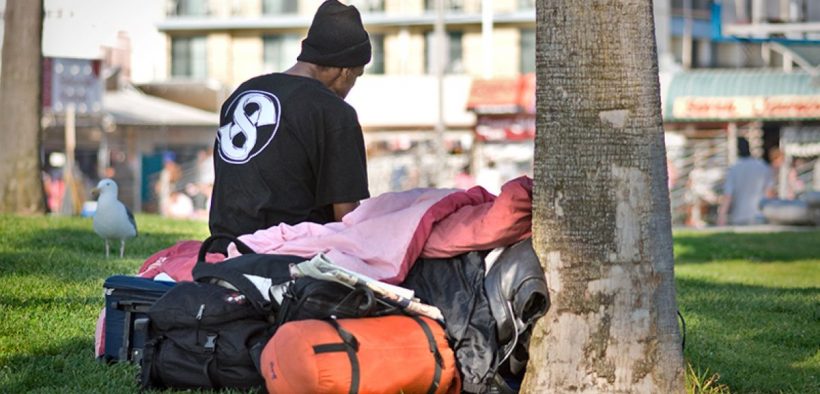Activists and Unhoused Battle Sweeps of Homeless Camps

With a global pandemic and an economic recession, homeless sweeps meet resistance
While millions of Americans were told to stay at home at the beginning of the coronavirus crisis, unhoused people were the most acutely impacted by the effects of the global pandemic. As a swathe of antiracist protests and uprisings across the country continues, activists are trying to highlight the struggles unhoused people are facing.
The CDC set out guidelines for how local governments should serve their homeless communities, but activists and the unhoused have been fighting against homeless sweeps in multiple major American cities.
In late April, Denver went against the CDC guidelines and conducted homeless sweeps, and The Denver Post reported cries could be heard as some in the homeless encampment pleaded for housing, not sweeps.
But when activists discovered the city’s plans to conduct another homeless sweep, protesters turned up to a homeless encampment, forcing the city to postpone the planned sweep. At the same time, protesters and activists tried to enter a press conference with Mayor Michael Hancock about Denver’s response to the coronavirus and were able to have a meeting with the mayor.
But activists left empty-handed, unable to secure a commitment from Mayor Hancock to stop homeless sweeps.
“He has to know, we’re not going to be quiet until he [Mayor Hancock] says, ‘No more sweeps, we’ll follow the CDC guidelines,” an activist told Denverite.
Sweeps Meet Resistance
Denver is not the only city government that has met resistance to its homeless policy during the coronavirus crisis.
In Minneapolis, where Black Lives Matter protests erupted after the police murdered George Floyd, unhoused people had been staying in a hotel during the unrest only to be evicted despite the efforts of residents and activists.
Many of those who received temporary shelter moved to Powderhorn Park, which has transformed into an encampment for 200 people. At the behest of activists and constituents, the Minneapolis Park and Recreation Board designated parks in the city as homeless sanctuaries.
San Francisco has also seen action to defend the homeless connected to Black Lives Matter protests as the city has one of the most visible difficulties in providing affordable housing to residents. The city recently reached an agreement to remove 300 of the tents in the biggest homeless encampment and provide the occupants with coronavirus tests and a hotel room.
But activists were unhappy with the agreement, as they say it contravenes the CDC guidelines and intervention could lead to an increased risk of coronavirus infection. There were also concerns that the police would be used to conduct the tent removals.
“Historic police enforcement of homelessness through citations, move along orders, and daily harassment has no place in our city and must be stopped,” the San Francisco Coalition on Homelessness said in a statement.
City Decisions: A Wild West Without Plan
Homeless sweeps are clearly against the CDC’s guidelines which say, “if individual housing options are not available, allow people who are living unsheltered or in encampments to remain where they are.”
Denver’s sweeps and other plans contradict CDC guidance, a cause for concern for residents and advocates.
“There’s no strategy,” Jacob Wessley, director of outreach and engagement for the Colorado Coalition for the Homeless told NPR. “That is our concern: When they do sweep this area, where are [those without homes] going to go?”
Previously, a city spokesperson said the CDC guidelines are only recommendations and not a mandate, but many city governments have only provided a coherent plan in the face of agitation from citizens.
As coronavirus cases spike in many states and combined with an economic recession, a wave of evictions is feared across the country. Without following clear guidance and with resources stretched thin, the vulnerability and number of unhoused people could swell in the coming months.
So far, community activists and unhoused citizens have won some battles across the country, but a long summer lies ahead.















